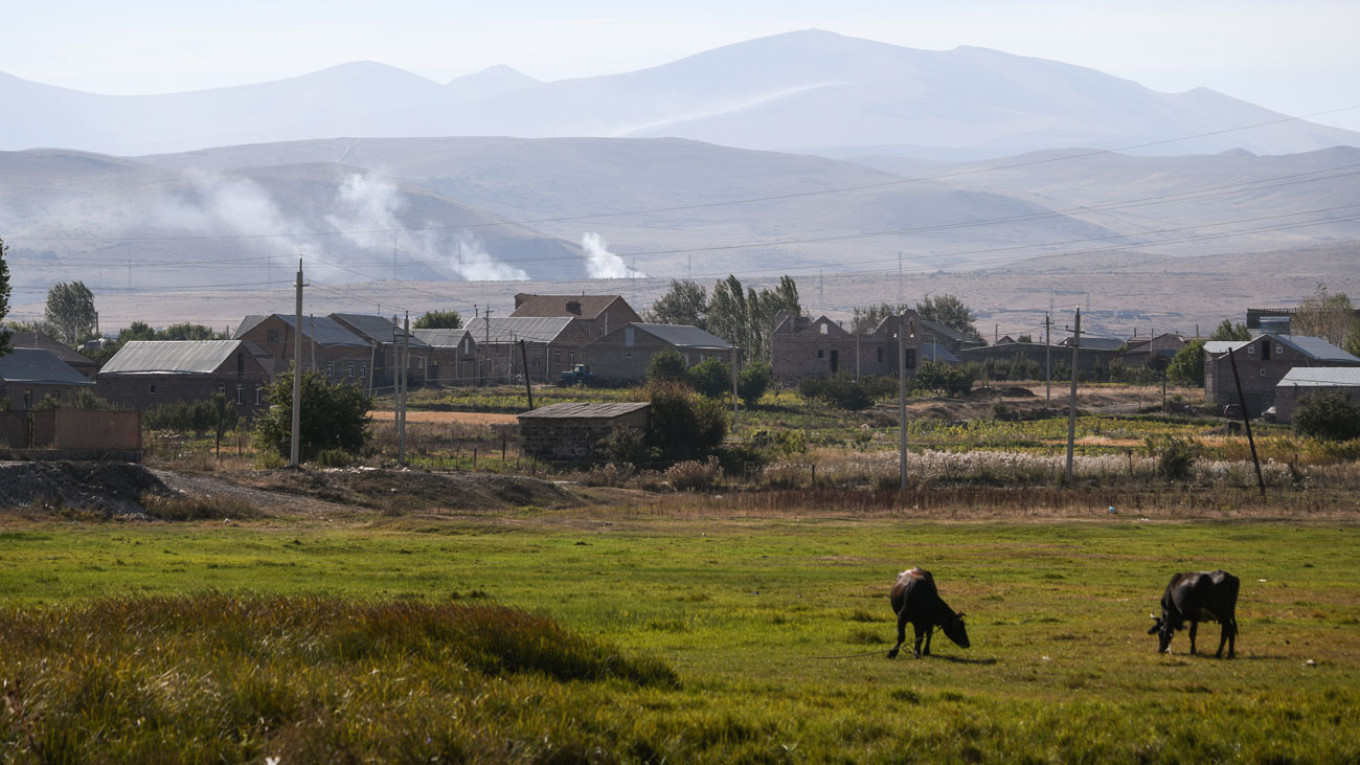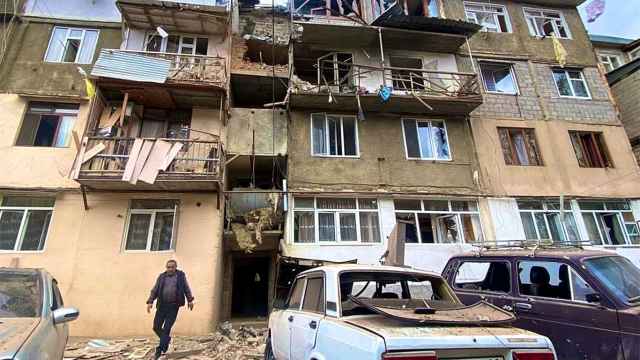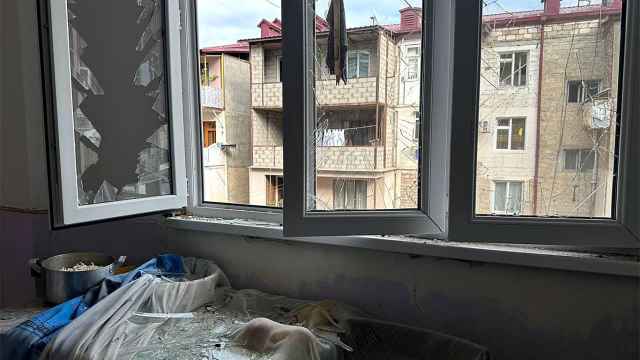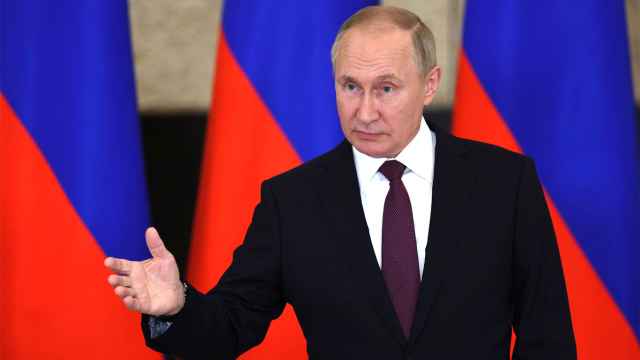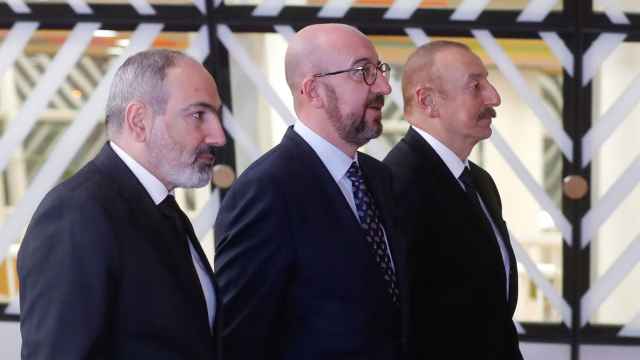Azerbaijan said Thursday that 71 of its troops had died in border clashes with Armenia over the last two days in the worst fighting since 2020.
Yerevan said a ceasefire was holding on the Armenian-Azerbaijani border, with no fresh violence reported overnight.
The earlier death toll given by Azerbaijan was 50.
Azerbaijan's defense ministry published a list of 71 servicemen killed in clashes between the historic rivals since Tuesday while Yerevan said 105 of its troops were killed.
The clashes ended "thanks to the international involvement" overnight on Thursday, Armenia's security council said, after earlier failed attempts from Russia to broker a truce.
The European Union welcomed the ceasefire, which it said was "being respected so far."
"The EU remains strongly involved in the normalisation process between Armenia and Azerbaijan," Peter Stano, the bloc's spokesman for foreign affairs and security policy, said in a statement.
EU Special Representative, Toivo Klaar, was holding high-level consultations in Baku on Wednesday and in Yerevan on Thursday, he said.
Baku and Yerevan have traded accusations of initiating the violence, which saw hundreds of Armenian civilians flee their homes.
The escalation came as Yerevan's closest ally Moscow is distracted by its nearly seven-month war in Ukraine.
A delegation of the Collective Security Treaty Organisation (CSTO) — a Moscow-led grouping of several ex-Soviet republics — is due in Yerevan later Thursday, Armenia's foreign ministry said.
Armenia is a member of CSTO but Azerbaijan is not.
On Tuesday, Armenia's security council asked for military help from Moscow, which is obliged under the treaty to defend Armenia in the event of a foreign invasion.
Fragile peace process
In Yerevan, opposition supporters staged an anti-government protest overnight, demanding Prime Minister Nikol Pashinyan's resignation, after rumors he was planning to agree on concessions in the decades-long territorial dispute with Azerbaijan.
The Caucasus neighbours fought two wars — in the 1990s and in 2020 — over the contested Nagorno-Karabakh region, Azerbaijan's Armenian-populated enclave.
The six weeks of fighting in 2020 claimed the lives of more than 6,500 troops from both sides and ended with a Russian-brokered ceasefire.
Under the deal, Armenia ceded swathes of territory it had controlled for decades, and Moscow deployed about 2,000 Russian peacekeepers to oversee the fragile truce.
The Ukraine conflict has changed the balance of power in the region, as Russia faces and increasing international isolation.
The European Union has since led the Armenia-Azerbaijan normalization process, which involves peace talks, border delimitation and the reopening of transport links.
During EU-mediated talks in Brussels in May and April, Azerbaijani President Ilham Aliyev and the Armenian leader Pashinyan agreed to "advance discussions" on a future peace treaty.
They last met in Brussels on Aug. 31, for talks mediated by the European Council President Charles Michel.
Analysts have said the latest escalation has largely undone Brussels' efforts to bring Baku and Yerevan closer to a peace agreement.
Ethnic Armenian separatists in Nagorno-Karabakh broke away from Azerbaijan when the Soviet Union collapsed in 1991. The ensuing conflict claimed around 30,000 lives.
A Message from The Moscow Times:
Dear readers,
We are facing unprecedented challenges. Russia's Prosecutor General's Office has designated The Moscow Times as an "undesirable" organization, criminalizing our work and putting our staff at risk of prosecution. This follows our earlier unjust labeling as a "foreign agent."
These actions are direct attempts to silence independent journalism in Russia. The authorities claim our work "discredits the decisions of the Russian leadership." We see things differently: we strive to provide accurate, unbiased reporting on Russia.
We, the journalists of The Moscow Times, refuse to be silenced. But to continue our work, we need your help.
Your support, no matter how small, makes a world of difference. If you can, please support us monthly starting from just $2. It's quick to set up, and every contribution makes a significant impact.
By supporting The Moscow Times, you're defending open, independent journalism in the face of repression. Thank you for standing with us.
Remind me later.


